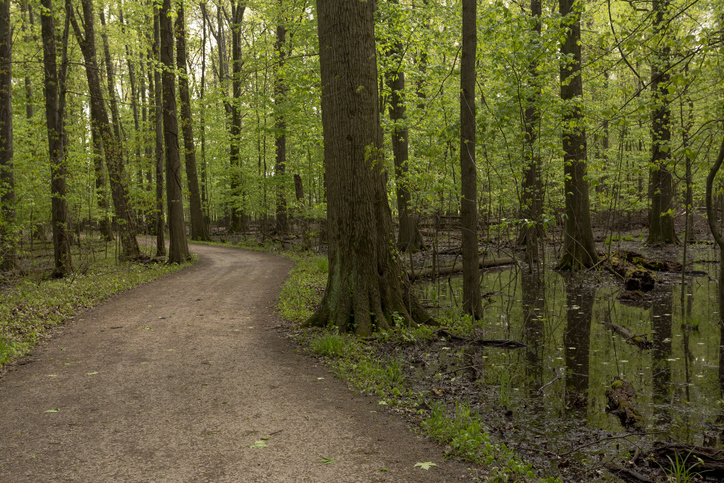The Barbarians Never Left the Gate for They Are We
December 28, 2019
Historical evidence doesn’t provide much hope, and that is profoundly saddening. Time and time again, humans have raped and pillaged the natural world with devastating consequences. History is littered with emperors, kings, queens, politicians, governments, and societies unwilling to sacrifice the slightest piece of treasure or portion of power to lessen our destructive march through time.
When it comes to the environment, humans have overdone just about everything: fishing; deforesting; hunting; grazing; mining; polluting; populating; and consuming.
Unable to summon the collective will to stop our environmental rampage, Mother Nature has tried warning us and scaring us. To no avail. Collectively, we don’t care. If we don’t care about each other, how can we care about the other forms of life and ecosystems that make our existence possible? We don’t. We take them for granted. They’re dying, as are we.
We create a false sense of caring by looking under school buses to make sure our children and grandchildren aren’t inadvertently standing there, even as microplastic pollution rains down on them, their drinking water continues to be contaminated by industrial chemicals, an explosion of infectious diseases hits hard, and the world around them burns, floods, and dries up.
About three-quarters of worldwide climate emissions come from the burning of gas, oil, and coal for energy. Since the start of the Industrial Revolution, humans have spewed some 500 billion tons of carbon into the atmosphere, and we’re adding another 10 billion or so annually. Climate science has repeatedly told us we have constructed a crisis. The future is in peril.
But even modest proposals to decarbonize the planet are attacked, typically by the self-righteous who also applaud caging immigrant children, encourage building walls, and rail against government interference unless it supports their (sometimes hateful) causes. Much more often than not, elected officials stand with those unwilling to address a real and serious problem.
The latest regional plan to reduce climate emissions from the transportation sector provides a recent example of this ongoing tragedy. The cap-and-invest plan outlined in a draft proposal of the 12-state Transportation & Climate Initiative, of which Rhode Island is allegedly involved, barely makes a dent in reducing transportation-sector emissions — the largest source of greenhouse gases in the Northeast — but our governor can’t even embrace the effort, and not because some environmental organizations have criticized the initiative’s weak target goals.
No, our governor doesn’t want to upset the fossil-fuel industry and its enablers and thus imperil her career ambitions. She’s not unlike most of her ilk.
The Rhode Island Department of Environmental Management, the agency overseeing the state’s involvement in the regional effort, expected a press release from the governor endorsing the proposal but one was never issued.
She’s been blowing off the environment since she was first elected.
A spokesperson for the governor said she supports a regional approach to addressing the climate crisis but didn’t offer her stance on the cap-and-invest proposal. The governor is likely waiting for handlers to tell her what to think. Again, she’s not unlike most of her ilk. The fossil-fuel puppets, however, can rest assured she won’t be calling for more ambitious target goals.
On Dec. 17, the day the Transportation & Climate Initiative draft proposal was released, conservative groups issued a letter regurgitating the oft-repeated lie that plans to reduce climate emissions, in this case from the transportation sector, will somehow unfairly burden low-income and rural populations. Even if such efforts did, those who signed the eight-paragraph letter likely wouldn’t care.
They didn’t craft a letter this past fall when nearly a million low-income students were told by the White House that they could lose access to free school lunches. Good luck finding evidence that any of the letter’s 18 signers is concerned about the staggering loss of hospitals in rural America.
“People already struggling to make ends meet will be forced by their own governments to make painfully difficult choices. Economically speaking, this is bad policy. Morally speaking, it’s just cruel,” according to those who signed the pro-fossil-fuel letter. They also happen to be among the cabal that continues to push for free lunches for the polluting industries they are compensated to support.
The crisis we face can’t be solved by voluntary offerings, however. Living in smaller houses, giving up SUVs, and/or buying less — overconsumption after all leaves less for our children and grandchildren — would help, even if only slightly. Eating less meat, bicycling to work more often, and/or driving an electric vehicle helps, but also only slightly.
The cure for what afflicts us is sacrifice, most notably from the environmentally destructive and highly profitable industries that have fueled this expanding crisis. Only large-scale government action, both here and abroad, can significantly reduce the amount of climate emissions we relentlessly spew into the atmosphere. A growing body of science is telling us we are running out of time to appropriately act.
Instead of listening to science and actually caring about future generations, far too many of us, especially those in seats of power, side with the delusional who believe we can geoengineer our way out of the problem or, worse, believe the climate crisis is a hoax. (Even if it were, what would happen if we acted now? We would have a cleaner planet, as we know for a fact burning fossil fuels is bad for human health and the environment.)
The big government actions needed would include taxes on carbon, bans on hydraulic fracturing, smartly incentivizing the evolution of wind and solar, and better funding renewable-energy research and development.
But a toxic combination of ignorance and greed keeps us from taking adequate action. Any measure designed to reduce climate pollution is absurdly branded — usually by the fossil-fuel industry and its enablers — as some kind of assault on our way of life. In reality, protecting the status quo and outrageous corporate profits is the real threat to life.
The U.S.-led campaign against climate action blames China and India for the crisis, even though the United States has historically belched out the most climate emissions and most of the citizens in those two disparaged countries have living standards far below our own. Those ghastly foreigners make much of the stuff we buy, at a rate far below minimum wage, but have consumed historically far less than we have.
Even minimalist efforts here to address the problem, such as banning plastic shopping bags, are labeled government overreach. Not giving out straws to adults in restaurants is linked to a deep-state conspiracy to rid the world of cows and planes.
In fact, the world’s most well-off countries, such as the United States, much of Europe, and Canada, have done little to truly address the climate crisis. Their governments have shirked responsibility and abandoned their leadership role. Collectively, their citizens don’t much care, as long as they are well fed and entertained.
A recent poll found that only a small fraction of Canadians — not the professional hockey team — were willing to fly less or give up meat to combat the impacts of a changing climate.
A 2018 survey by the Energy Policy Institute at the University of Chicago found that only 57 percent of respondents supported a dollar tax on their electric bills to fund initiatives that would address the mess we’ve created.
That lack of concern is profoundly saddening.
Frank Carini is the ecoRI News editor.




I totally agree with the urgency of the moment and am disappointed, though not surprised in the least, in Governor Raimondo’s failure to step up and lead. If there are aspects of the proposal she doesn’t like, she should suggest changes. But to simply abandon TCI as she is tacitly doing is unconscionable.
And this is the politician who has served as the Chairwoman of the Democratic Governor’s Association for the past year.
Heaven help us next November!
While I like the post, and agree with Bill, I’d add that underlying this is democracy – no use blaming the Governor, the fossil fuel barons, or even the hypocritical right-wing leaders professing love for the poor burdened by carbon taxes. Its the people, not convinced even in relatively affluent, liberal places (like Rhode Island, Washington State, Australia, France…) that they should accept any inconvenience, imposition or cost in dealing with climate change as demonstrated in the various ways they voted or protested. Part of this is the understandable human tendency to deal mainly with immediate problems and put off long term problems, part of it is encouraged by the fossil fuel interests, but I think the environment community also helps facilitate this thinking by using painless feel-good terns like "clean energy" "zero emission electric vehicles" "green new deal" which seem to promise no cost. And its not just climate change, we are also leaving the next generations massive debt, deteriorating infrastructure we don’t want to pay to maintain, and continued massive population growth to deal with.